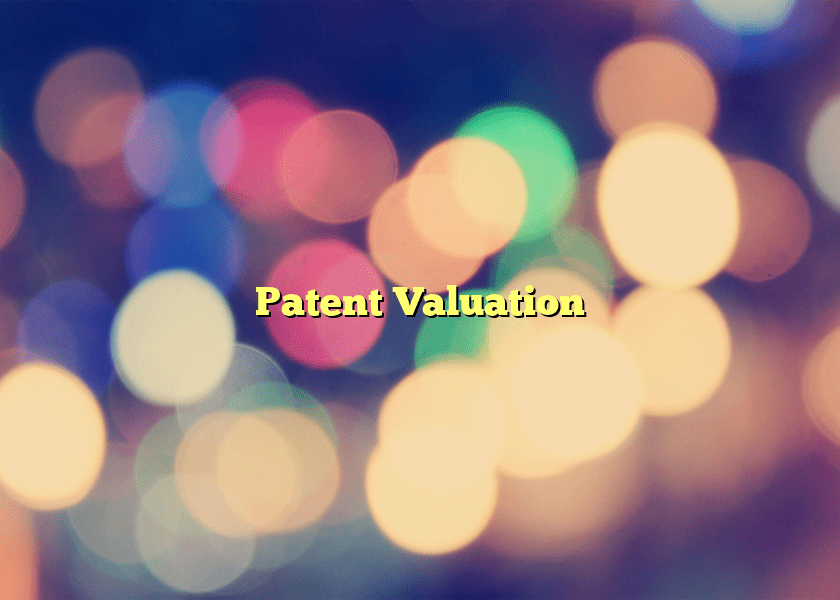Patent Valuation
KWD: 14/444 = 3.15%
Patent Valuation
Patent valuation refers to determining the value of patents. Some patents are very valuable, but a number are not. Because patents often are quite complex, patent valuation is usually a highly detailed and expensive process that requires the input of lawyers and advisers with specific technical knowledge and experience. The makeup of patent valuation teams will vary by engagement, but it is axiomatic that before an appraiser can value something, he or she has to understand what it is. Here are some suggestions to help those involve in patent valuation work to do just that:
1. Check whether the patent is in force. Before starting a detailed patent valuation, he or she should see whether one is warranted.
2. Identify the context. The premise of any patent valuation engagement can affect its conclusion.
3. Gather information. For particularly valuable patents, patent valuation teams should request the following:
§ A copy of the application file on the patent, including all USPTO correspondence.
§ A list of any foreign patent applications relating to the invention.
§ Copies of any relevant business plan, marketing study, financial statements and independent appraisal.
§ Descriptions of any litigation, past or present.
§ Copies of any contract, licensing agreement or offer to license pertaining to the patent.
§ Available economic data on the industry in which the invention is used.
§ Copies of promotions and advertising materials used during the past year relating to the invention or the product in which it is incorporated.
§ Cost information relating to the existing or proposed patented product including cost accounting records and/or engineering feasibility studies.
4. Assemble a valuation team. Expertise in patent law, an understanding of monopolies, business valuation skills and a background in the technology of the patent are often essential for accurate patent valuations.
5. Read the patent. In patent valuation, one should either carefully read the patent or carefully interview an independent patent attorney who has.
6. Investigate the patent’s scope. A patent’s scope of protection often is the most important basis of value in patent valuation.
7. Talk with a patent attorney. One should go to the patent and patent attorney databases at www.uspto.gov to find the originating attorney(s) for the patent.
8. Inquire about the patent’s validity. The possibility a patent may be held invalid if challenged in court diminishes its patent valuation.
9. Inquire into blocking patents. If the new invention infringes a prior patent, the earlier one is said to “block” it, diminishing its potential patent valuation.
10. Investigate foreign patent protection. A valid patent registered in multiple national jurisdictions will have a larger market and will be worth more in patent valuation.
